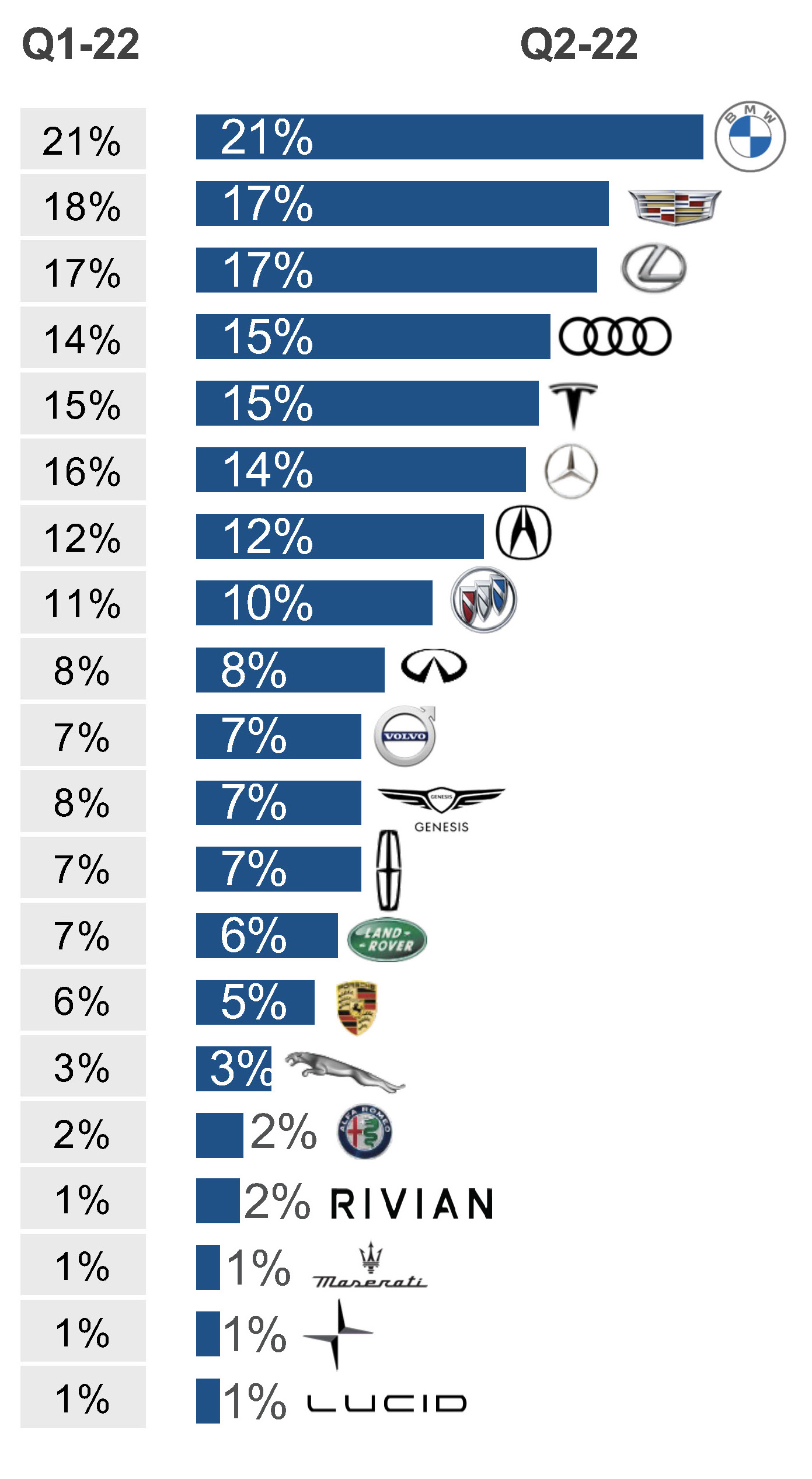The China Factor: Analyzing The Difficulties Faced By Premium Car Brands

Table of Contents
Intense Competition in the Chinese Luxury Car Market
The Chinese luxury car market is a fiercely competitive arena, a battleground for both established international players and rapidly rising domestic brands. This intense competition manifests in several ways:
-
Major Competitors: International brands like BMW, Mercedes-Benz, Audi, and Porsche face stiff competition from domestic brands such as BYD, NIO, Xpeng, and Li Auto, which are rapidly gaining market share with innovative designs and technologically advanced features. The competitive landscape is further complicated by the presence of other established international brands vying for a piece of the pie.
-
Price Wars and Promotional Strategies: To attract consumers in this highly competitive environment, brands engage in price wars and aggressive promotional strategies, impacting profit margins and requiring strategic pricing models.
-
Market Share Dynamics: The market share dynamics are constantly shifting, with domestic brands aggressively challenging the dominance of established international players. This requires continuous adaptation and innovation to maintain a competitive edge.
Understanding the Unique Preferences of Chinese Consumers
Understanding the evolving preferences of Chinese luxury car buyers is crucial for success. Chinese consumers are discerning and their purchasing decisions are often driven by factors beyond mere vehicle performance:
-
Brand Image and Social Status: Luxury car purchases often serve as status symbols in China, with brand image playing a crucial role in purchase decisions. Consumers are seeking brands that align with their aspirations and social standing.
-
Technologically Advanced Features and Personalized Services: Chinese luxury car buyers are highly receptive to technological advancements, demanding features like advanced driver-assistance systems (ADAS), connected car technologies, and personalized infotainment systems. Furthermore, a high level of personalized service is expected throughout the ownership experience.
-
Influence of Social Media and Online Reviews: Social media platforms like WeChat and Weibo, and online review sites, significantly influence purchase decisions. Positive online sentiment and strong social media presence are crucial for success in this market.
Navigating the Complex Regulatory and Legal Landscape
China's regulatory environment presents significant challenges for foreign premium car manufacturers. Navigating this complex landscape requires meticulous planning and compliance:
-
Import Tariffs and Taxes: High import tariffs and taxes increase the cost of imported vehicles, impacting pricing strategies and profitability.
-
Environmental Regulations and Emission Standards: Strict environmental regulations and emission standards necessitate investment in cleaner technologies and compliance with increasingly stringent regulations.
-
Bureaucratic Processes and Approvals: Bureaucratic processes and approvals for vehicle imports, manufacturing, and sales can be time-consuming and complex, requiring substantial resources and expertise.
Building a Strong Local Presence and Supply Chain
Establishing a strong local presence and a robust supply chain is essential for long-term success in the Chinese luxury car market:
-
Benefits of Local Manufacturing and Sourcing: Local manufacturing and sourcing offer advantages like reduced import costs, quicker response to market demands, and better understanding of local preferences.
-
Importance of Strong Dealer Networks and After-Sales Service: A comprehensive dealer network with exceptional after-sales service is crucial for customer satisfaction and brand loyalty.
-
Challenges Related to Logistics and Supply Chain Management: Efficient logistics and supply chain management are vital to ensuring timely delivery and minimizing disruptions. This requires a sophisticated understanding of the Chinese infrastructure and logistics landscape.
Conclusion: Overcoming the China Factor for Premium Car Brands
Successfully navigating the complexities of the Chinese premium car market requires a multifaceted approach. Intense competition, understanding evolving consumer preferences, navigating complex regulations, and building a strong local presence are all critical factors for success. Premium car brands must adapt their strategies to cater to the unique demands of the Chinese luxury car market. To thrive in this dynamic environment, further research into consumer behavior, regulatory updates, and localized manufacturing strategies is crucial. Explore resources from industry publications, market research firms, and government agencies to develop effective strategies for conquering the "China factor" and capturing a substantial share of this lucrative market.

Featured Posts
-
 Bmw And Porsches China Challenges A Broader Industry Issue
May 16, 2025
Bmw And Porsches China Challenges A Broader Industry Issue
May 16, 2025 -
 Menko Ahy Dan Pembangunan Giant Sea Wall Informasi Terbaru Dan Timeline Proyek
May 16, 2025
Menko Ahy Dan Pembangunan Giant Sea Wall Informasi Terbaru Dan Timeline Proyek
May 16, 2025 -
 First Look At Andor Major Star Wars Event Finally Revealed After 31 Years
May 16, 2025
First Look At Andor Major Star Wars Event Finally Revealed After 31 Years
May 16, 2025 -
 Twitter Firestorm Anthony Edwards Family Drama
May 16, 2025
Twitter Firestorm Anthony Edwards Family Drama
May 16, 2025 -
 Googles Role In La Liga Piracy Case Criminal Charges On The Table
May 16, 2025
Googles Role In La Liga Piracy Case Criminal Charges On The Table
May 16, 2025
